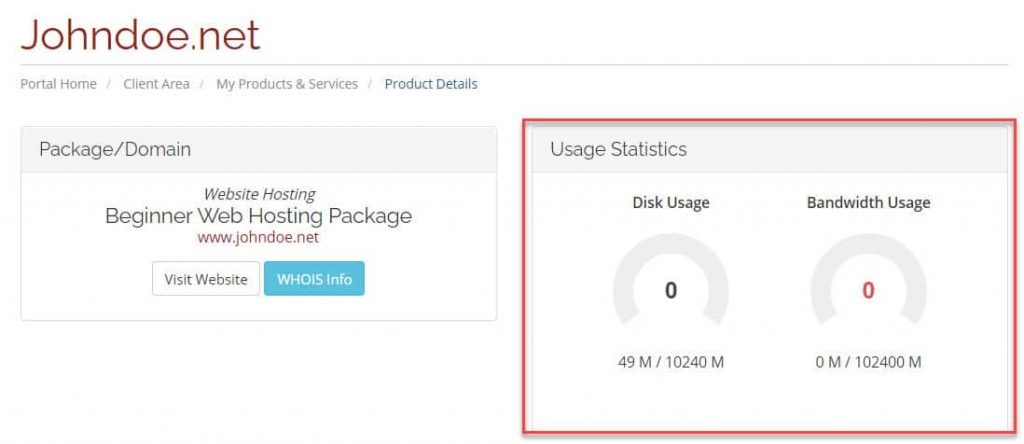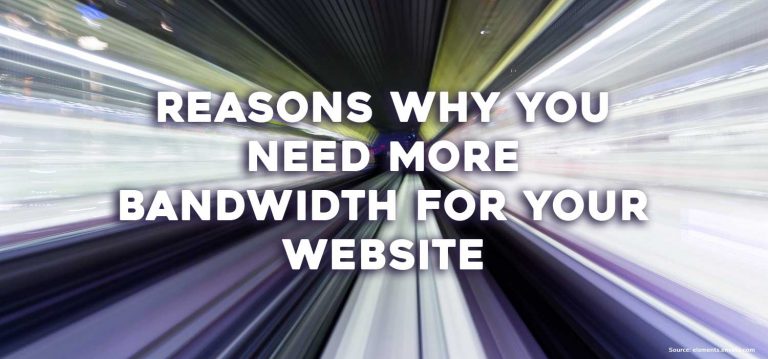Whether pro or casual user, at some point during your online experience, it is highly possible that you would have come across the term bandwidth. Whether you are curious and ask how much bandwidth does my website need or how does bandwidth affect my website? It is a term that is out there. In this article, you will learn how it is defined and discover 5 distinct reasons why more bandwidth is beneficial to your website.
Table of Contents
What is Bandwidth?
Bandwidth in its simplest terms refers to the amount of data that can be transferred from your website across the Internet to your users. You could almost imagine bandwidth as a ball. One person throwing a ball over a net to someone else. The person throwing the ball is your website, the ball (which can come in many sizes: golf, tennis or even a volleyball) is your bandwidth and the other person receiving the catch represents your users. Now clearly, the net would incidentally represent the net – the Internet.
Another term you may have come across is bits per second or bps. Well this is how bandwidth is expressed. There however, are variations in this measurement such as megabits per second (mbps), kilobits per second (Kbps) or gigabits per second (Gbps). Now don’t get startled at what all this means because in its simplest form, these measurements are simply variations of sizes. Different sizes of balls if you will.
The ultimate aim is to have larger bandwidth. Why? With larger bandwidth, you can move data faster. A bandwidth of say 300 bps will be way faster than one with 30 bps.
Larger bandwidth will also determine the amount of people who can visit your website. If your website is content heavy or generally contains much media content (photos and videos), you will need more bandwidth to manage it. You will need a great website hosting platform with more bandwidth that enables you to better your user experience thus leaving your visitors satisfied that they chose your website for that content.
How much bandwidth does my website need?

Before answering this question, it is important to note here that:
1. you should not pay too much for bandwidth you really don’t need and
2. You also don’t want to not have enough bandwidth.
So then, how much bandwidth does my website need?
Your bandwidth will all depend on the size of your web page along with the number of visitors you have to your website and the number of pages they visit. Here is a simple template. An average web page size is about 50 KB which can equate to 20k users per month. Say with 5 pages per visitor, your website will inevitably need say 5000 MB or 5GB of bandwidth per month.
To determine the average page size of your website and the kilobytes (kb) that it carries. Many experts recommend that webpagetest as a great tool to get you started. Checking to see which page on your website is most popular with your audience can also come in handy here.
Having done your calculations, you can now multiply your average page size by the number of average monthly visitors to your website you already have or want. Afterwards, you will then need to multiply this number by the average number of page views per visitor. This process will help you gain a better understanding of how much bandwidth you will need for your website.
Quote: Calculating your bandwidth needs may prove important to the smooth flow of your website.
On the other hand, there are options from providers to receive unlimited bandwidth. Another option you can explore as you question how much bandwidth does my website need.
Why You Need More Bandwidth For Your Website?
As we have already established, having more bandwidth is highly beneficial to the success of your website however, not paying for more than you need is equally important. In any event, having more bandwidth will do more good than bad when it comes on to the smooth operation of your website and here are 5 reasons why.
1. Speed is Boss

With more bandwidth comes more speed. When your website loads faster, you have immediately given your visitors a good first time impression. It is a quick-win in your user experience department. It may be taken for granted at times but there is joy within a user when this happens. Visitors to websites DO NOT enjoy buffering or sites that say LOADING.
2. Gain More Visitors
The ultimate aim of your website is to drive as much traffic to your content – products or services. With more bandwidth, there is more speed and with more speed, your website visitor experience grows. Visitors to your website are more likely to return and/or share your website with others when they know your website is free of glitches, buffering or takes long to load.
3. The Professional Edge
Within a psychological profile, persons associate fast – easy to maneuver websites with being professional. If it is that you wish to have this kind of appeal, then your answer is not far-fetched. It’s simply more bandwidth. With this professional edge, your website will be linked with being reliable. This professional appeal also adds efficiency and a certain level of trustworthiness to your website. Persons viewing your website also gain a level of confidence when they visit.
4. More space is your friend

With more bandwidth comes more space. If it is that you would like to have more space for all your content, when you purchase a plan, it is best to get the right speed which is directly associated with enough space. With sufficient space to carry all the content of your website, it is a guarantee that there will be no lag and inefficiency with the accessibility of your content. Visitors will have the user-experience they need as the internet now is a place built on quick access.
5. Slow Websites can affect your Google ranking
It is no question that Google has a passion and love for speed. When you search for content in Google, your results are accompanied with search time. In fact, Google has been quoted as saying “We’re striving to make the whole web fast”. You can learn much information about a website’s search ranking online. Some of it may be valid while some may be false. Here is what Google has asserted in the past.
- Google takes website load speed into consideration when ranking websites (2018)
- Google will reduce the amount of crawlers it sends to websites if their server is slower than 2 seconds.
This simply means Google will be less likely to pick up your website when users search for content related to yours. Albeit, there are also many other factors at play. Speed matters and it directly affects your sales, conversions and search ranking.
In Conclusion
How much bandwidth does my website need? Having the right amount of bandwidth for your website is crucial. With the right amount of bandwidth, you will attract the right audience and in turn share with them a great user-experience. Slow websites are a deterrent to productivity and your bottom line. With the right amount of bandwidth, comes better speed. Users enjoy websites that are easy to maneuver and will be more likely to recommend them. Having more bandwidth is a continuous plus!






